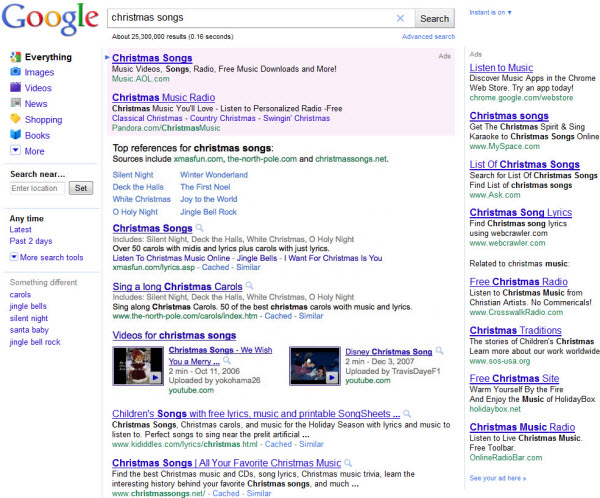Google Product Search Ecommerce Play
In a "oh what is the brown stuff oozing from my pants" moment for some e-commerce site owners, Google has quietly entered the space of pulling in manufacturer data directly into Google product search:
To make these pages even better, we plan on working with suppliers and manufacturers to get product data straight from the source.
We are starting this effort through a business partnership with Edgenet, a provider of product data management solutions. Manufacturers and suppliers can work directly with Edgenet's Ezeedata service to submit high-quality product data and images to Google. For more information, you can visit their website, at www.edgenet.com .
Example here.
In the past Google has also beta tested sneaking paid inclusion into their product search, plus they have already started hard-coding their ebook results in the organic search results in the US (without disclosure). at some point you can count on this huge block of product information Google is pulling in to appear directly in the organic search results, pushing many ecommerce organic search results below the fold. Boutiques.com was just the start of a trend.
What makes this trend scarrier is that everyone is doing it: Google, Yahoo!, Bing, Ask, etc.
The mental model I have come to view search through is this: if a search engine can cut you out of the supply chain while having similar quality then they consider you to be at best irrelevant and at worst a spammer. Alternatively, the more your offering looks like a search engine, the more likely it is to be viewed as spam.
The big issue with this is network effects. Outside of brand corrosion & legal issues, there is basically no limit to how far search engines can push. Sure the above focus is on ecommerce, but don't forget that Google is buying Metawebs + ITA Software. And they have the ability to create vertical databases on the fly. If you want their search traffic you have to opt into being scrapped and disitermediated, likeso:

You can differentiate by having product information. But Google scrapes it. You can differentiate through consumer & editorial reviews. But Google scrapes it. You can differentiate by brand, but Google sells branded keywords to competitors. No matter what you do, Google competes against you. You can opt out of being scraped, but then you get no search traffic (& the ecosystem is set up to pay someone else to scrape your content + wrap it in ads).
If you are a big player (like TripAdvisor) you can tell Google to get stuffed & re-negotiate more favorable terms. Smaller players don't have that luxury. Without that leverage, Google doesn't feel they have a spot on the commercial web.
These sorts of trends make the concepts of branding and positioning more important. If Google (and similar companies) aim to consolidate down markets into fewer players then it makes sense to be a #1 in a smaller niche market than a #5 in a bigger one.




Comments
Best statement in the whole article
"These sorts of trends make the concepts of branding and positioning more important."
Again Google - inadvertently - has nudged us to become a little more professional with our website presentation and with our informative content.
I'm not saying that's their job. Their job is to make "MONEY" and to remain the Big Shot.
Although....We SEO's - what ever that means - seem to be a thorn in their side, yet they continue to appease us. A Strange relationship to say the least.
Among all of these little quarks that Google will continue to play with, we SEO's can be sure that we will always be able to provide our services to our customers for as long as Google remains a Search Engine.
Hay! There's a question for discussion. For how long "WILL" Google be a search engine? That is,.... as we know a search engine be?
I'm sure the Google Product Search Data being slipped in under the radar as part of the search results is yet another one of their feeble attempts to work towards gaining total control of search results. Unfortunately for them they are a search engine.
They can't ever really totally control results. If they did,....they would no longer be a search engine. But!...that day is coming.
All information on the planet will eventually be reduced to voice search and it will all come from one place that is totally controlled.
But we won't be here when it comes to that. Or will we? :-)
JohnRobbins - Techndu.com
Add new comment